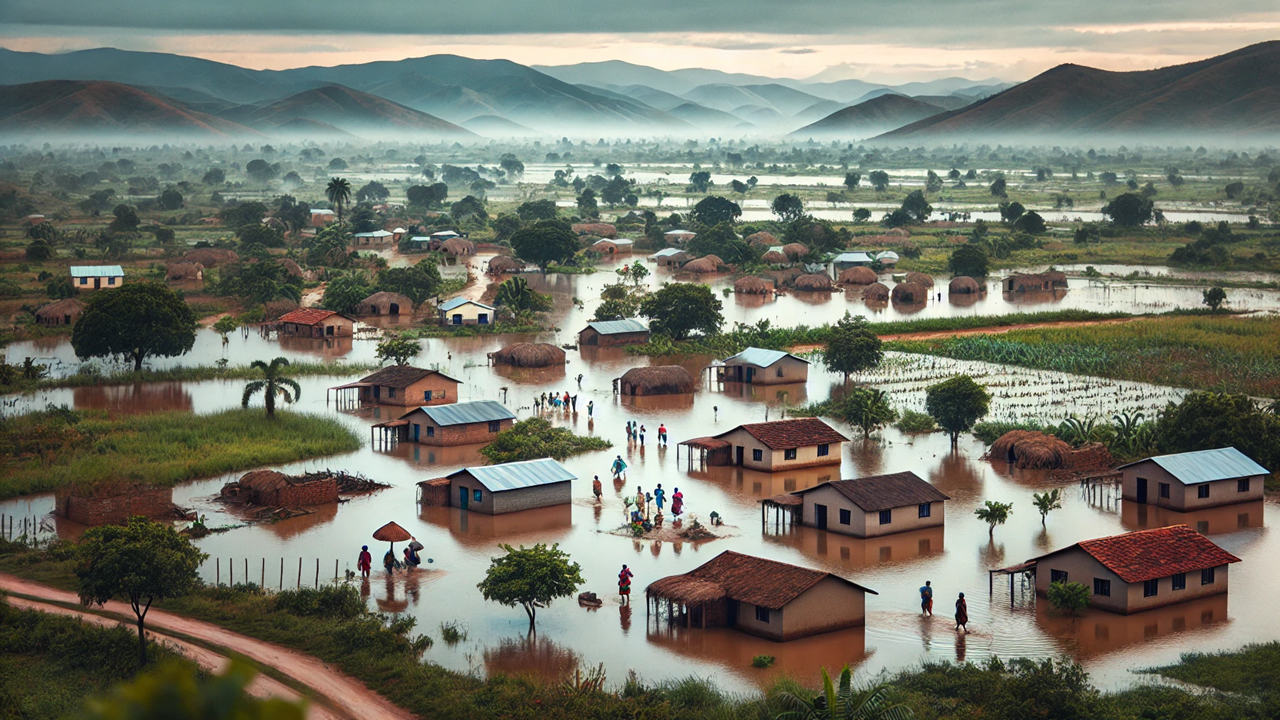Over two million children in eastern Bangladesh are at dire risk as severe floods, the worst in 34 years, wreak havoc on homes, schools, and entire villages, UNICEF has warned. The catastrophic floods, triggered by unprecedented monsoon rains, have impacted 5.6 million people across the region.
In southeastern Bangladesh, major rivers have overflowed, submerging vast areas in Chattogram and Sylhet Divisions. The rising waters have claimed over 52 lives and displaced more than 500,000 people, forcing them to seek shelter as their homes, streets, and fields are submerged. With millions of children and families stranded without food and emergency relief supplies, rescue operations are underway, though access remains challenging in some areas. As the monsoon season continues, the situation is expected to worsen.
Emma Brigham, Deputy Representative of UNICEF Bangladesh, emphasized the devastating toll of these floods on children: “The floods in eastern Bangladesh are a tragic reminder of the relentless impact of extreme weather events and the climate crisis on children. Many have lost their loved ones, homes, and schools, leaving them in desperate need. UNICEF is on the ground, providing essential supplies, but more funding is urgently needed to prevent further devastation.”
UNICEF has been actively responding to the crisis since it began, participating in an initial assessment mission with Hasan Arif, Advisor to the Ministry of Local Government, Rural Development and Cooperatives. Along with its partners, UNICEF has already reached over 338,000 people, including 130,000 children, with life-saving supplies such as 3.6 million water purification tablets, 25,000 jerry cans, and over 250,000 oral rehydration salt sachets.
However, the needs are immense. The affected populations urgently require cash assistance, safe drinking water, hygiene kits, emergency latrines, sanitary pads, and life-saving medicines. Primary healthcare services, crucial for treating sick children and supporting pregnant women, need immediate restoration.
These floods come in the wake of previous disasters, including floods in northern Bangladesh and Cyclone Remal in May, together impacting over 13 million people, including 5 million children across the country. In response to these cumulative crises, UNICEF is urgently seeking $35.3 million for critical, life-saving interventions to support children and vulnerable populations.
The increasing frequency and severity of extreme weather events in Bangladesh, driven by climate change, underscore that the climate crisis is fundamentally a child rights crisis. The UNICEF Children’s Climate Risk Index ranks Bangladesh as the most exposed country in the world to climate and environmental hazards.
Globally, UNICEF is addressing the climate crisis by working to protect children's lives and well-being, empowering them as environmental champions, and reducing emissions and environmental footprints.
Brigham called on global leaders to take urgent action: “Year after year, millions of children in Bangladesh suffer from the ravages of floods, heatwaves, and cyclones. Climate change is altering children’s lives in profound ways. We urge global leaders to act now and take strong measures to mitigate the effects of climate change before it’s too late for the world’s children.”











